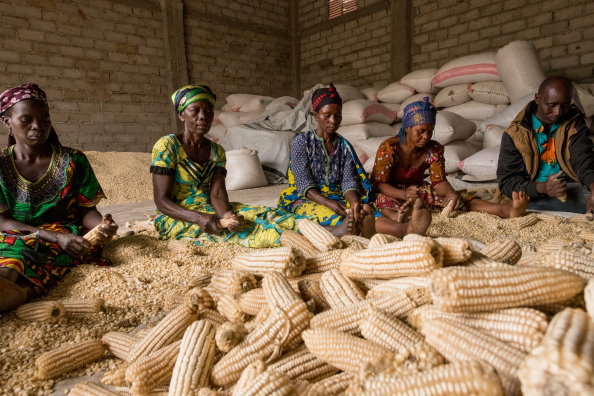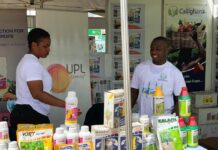The Coronavirus pandemic took a heavy toll on human lives and economic activity which has made the eradication of poverty and hunger impossible without urgent focused by the internal cooperatives’ effort directed at long-term development.
This was said by the partners during the launch of the Emergency Support to Rural Livelihoods and Food Systems exposed to Covid-19 at the Ministry of Food and Agriculture Information and Resource Centre in Accra.
“The coronavirus pandemic and the climate crisis must drive home the message to all rich and poor that their destinies are tangled” Rukia Yacoub, World Food Programme Representative and Country Director in Ghana, told Representatives at the launch.
The Country Director mentioned that there is a need for a common plan and strategy for internal recovery and the survival and prosperity of all in the region.
Well-targeted social protection cushions the poor protect them from economic destitution and prevents the complete erosion of long-term gains in human development.
She added that they are providing cash transfers to protect the livelihoods, incomes, and resilience of 5,000 extremely vulnerable households in the poorest districts in the Northern, North East, Savannah, Upper East, and Upper West regions, from the impact of the Covid-19 pandemic and from climate change.
“The World Food Programme’s role is to support the implementation of the cash transfer component of this Emergency Support to Rural Livelihoods and Food Systems project which will provide US$ 1.5 million to 5,000 extremely vulnerable households. The World Food Programme itself has also contributed US$ 300,000 to this project. The United Nations World Food Programme is the world’s largest humanitarian organization, saving lives in emergencies, building prosperity, and supporting a sustainable future for people recovering from conflict, disasters, and the impact of climate change” she said.
Emphasizing the profound economic damage that the pandemic is having on rural folks where poverty and hunger are on the rise, Mr. Robert Patrick Anokobiah, Acting Chief Director for the Ministry of Food and Agriculture said the challenges of the rural folks need new innovations within the agriculture value chain to provide good agricultural infrastructures across the country.
“Regional cooperation with development organizations was crucial for our struggle against the Covid-19 pandemic and it continues to be necessary so that together we can tackle the effects of the pandemic.
This project is targeting 25,000 households including youth, persons with a disability, and smallholder farmers between the ages of 18 to 35 with each person receiving about GH¢ 1000.
The government will continue focusing on technological solutions and innovative financing models” Mr. Anokobiah said.
According to the Partners, fighting growing global hunger and poverty needs to be addressed through global partnerships and greater long-term investments in the rural people who produce food for the world, but often are the poorest and hungriest.
“This initiative will enable the vulnerable to be better and able to build resilience against shocks such as the Covid-19 pandemic.
An estimated 63 percent of the world’s poor people work in agriculture, the overwhelming majority are rural smallholder farmers. While they produce much of the world’s food, they remain vulnerable to hunger and often struggle to make a decent living” they added.








